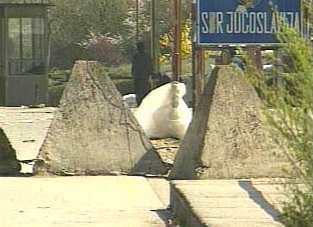 For years, writes Dalrymple,
For years, writes Dalrymple,
doubt about the wisdom of a European project (whose end can only be seen as through a glass, darkly) was attributed by its enthusiasts to a quirk, one that combined some of the features of
- mental debility
- arachnophobia
- borderline personality disorder
One would not be surprised to learn that the European Union had sent lobbyists to Washington to have Euroscepticism included as a category in the American Psychiatric Association’s Diagnostic and Statistical Manual of Mental Disorders.
By now, though,
even the most convinced European projectors must have noticed that their project is not going swimmingly.
But
the projectors suggest that the solution to the difficulties is the granting of even more powers to themselves or people like them, that is to say those who conjured up the difficulties.
Morbid conditions
are never equally distributed geographically, and Euroscepticism was originally a predominantly British disease, an amusing consequence of our insularity; but it is spreading throughout Europe. The débâcle of the common currency, which will no doubt have a dénouement but not necessarily a solution, has lowered the estimate of the union in the eyes of practically all member populations.
What if the results of referenda turn out unfavourably?
The history of the union suggests that they will either be ignored or that there will be more referenda until the population gets the answer right: the European variant of African post-colonial democracy, that is to say one man, one vote, once.
And people like Habermas, Van Rompuy, Barroso et al.
are capable of boring the people of Europe into submission. You can bamboozle people so long as politics does not really interest them because their lives are going along quietly and smoothly, and they do not pay it much attention.
But
once their attention is caught by such things as unemployment, evaporation of their savings, constantly increasing taxes and collapsing living standards, more precision will be needed.
Words that
connote human solidarity but denote bureaucratically administered and enforced transfer payments — on a scale that make Marshall Aid look like pocket money — will no longer suffice.
Openness, says Dalrymple,
is not the same thing as the incontinent abandonment of character, any more than hospitality is the indiscriminate welcoming, without any exclusion, of all and sundry into one’s home.
Multiculturalism as an official doctrine,
complete with enforcing bureaucracies, undermines the rule of law because it seeks to divide people, formalise their cultural differences and enclose them in moral and intellectual ghettoes. The rule of law requires a common cultural understanding, not merely the means of repression to enforce a legal code. Once that cultural understanding is lost, all that remains is repression, effective or ineffective, and experienced as alien and unjust. Nothing remains but conflict or surrender.
Supranational courts cannot supply the want of a national understanding, for two reasons:
- They are designed to escape any national tradition, as Rousseau knew Man, but not men. Just as the European Central Bank could set interest rates adapted to none of the member countries’ economic needs, so a supranational court or organisation can produce rulings that correspond to no one’s traditions, principles, requirements or interests.
- Supranational organisations, unlike international ones, escape the kind of checks and balances that can operate on a national scale. In the French press the need for such checks and balances is not even mentioned, probably because it is not thought to exist. In Napoleonic tradition, every problem is conceived as an administrative one; and even as the scant legitimacy among the French population of Europe seeps away, so it is proposed that the powers of a European administrative class be increased.
 It necessitates, Dalrymple writes,
It necessitates, Dalrymple writes,















